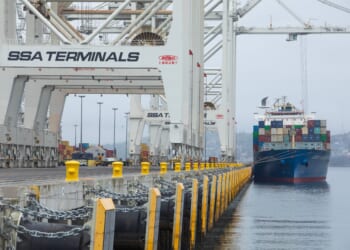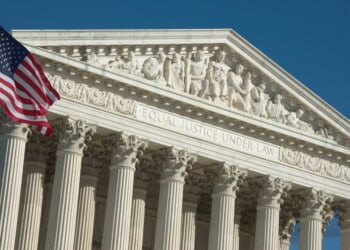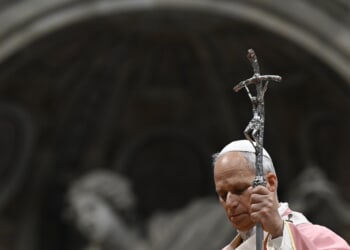Jerry Li is a MA student at Durham University.
Much has been remarked upon Danny Kruger’s defection to Reform. Attention has been given to his role in Reform’s determination to learn to govern with seriousness, to which Mr Kruger’s intellectual depth will give credence. But more than that, when Kruger pronounces the Conservative Party to be over, he was careful to clarify that it does not mean the party will cease to exist, but rather that it will cease being a national party.
This is the prospect last suffered – indeed still endured with blissful ignorance – by the Liberals a century ago. Over the course of the last century, the party which could have boasted a history nearly as long and illustrious as the Conservative Party ebbed and flowed like a discoloured bollard.
In the ruthless arithmetics of first-past-the-post, the Liberal Party was displaced by Labour as the principal party of the left in the space of two elections, never to wield power again (until Nick Clegg). The bollard would occasionally clatter against the ship of state during a hung parliament – notably in 1974 and 2010, but any rising politician with any degree of judgment would know that the outfit was effectively irrelevant in national government.
This fate would have seemed improbable at the start of the First World War or even ten years on, when the Liberals once again, albeit briefly, attained three figures in seat count. Yet the ground beneath them has shifted, heedless of the claims of habit, or history, or service.
Much of the defiant sentiment in the Conservative Party appeals to traditions. The party of Peel, Disraeli, Churchill (with interruption) and Thatcher contributes much to the nation’s political apparatus past and present. It stretches back to the old Stuart Tory party. Yet the same may be said of the Liberal party as they fell from political relevance.
The spell and the beauty of an intellectualised and romanticised conservatism will continue to bind enthusiasts of the tradition. But as with the movement of personnel from the Liberals to Labour in the former’s declining years, however enchanting, the spell was no substitute for power. Nourished by the rich liberal political tradition, the Liberal Democrats survive to this day in isolated former nonconformist holdouts and Gail’s-studded bucolic lairs. No doubt on conservative philosophy the Tories could do the same.
Experience and credibility is the other popular defence. Many in Ramsay MacDonald’s first government, like a hypothetical Reform government, had no experience of government. But they were supplemented by Liberal grandees, most prominently Richard Haldane, who was once of Asquith’s most trusted cabinet ministers. Likewise, Wedgwood, Trevelyan and Ponsonby, distinguished names from prominent Liberal political families flocked to the banner of Labour. With them they brought ideas they advocated as Liberals, such as the land tax, opposition to war, and advocacy for nonconformity.
Like them, Mr Kruger is not proposing to mould himself in Reform’s shapeless image, rather, his stated intention is to board Reform as a ‘vehicle’ of his convictions. In practice, that will involve conflict and compromise, like his disagreements with the Conservative whips under the Sunak government over immigration.
Haldane and Wedgwood likewise aligned with neither Liberal nor Labour perfectly, both having been fired from the Liberal cabinet during the war. Nevertheless, their defections signalled the sea change under way: when conviction politicians shuffle, they do so because they believe the same vision could be better achieved elsewhere.
“The Right must unite,” urged Sir Jacob Rees-Mogg, an institutionalist with profound attachment to the historic Conservative Party, trusting implicitly that conservatives will fall behind the same banner. In the last years of the Liberal Party’s pre-eminence, many Liberals too trusted that the ‘progressive coalition’ of the Liberal-Labour pact all but confirms the tendency of unity on the British left with the history party of progress at its head. Yet the ruthless logic of first-past-the-post takes no prisoners. Mr Kruger thinks the guard has already changed, that Farage already bears that banner.
The high noon of Edwardian Liberals saw them winning a majority larger than Boris’ in 2019, heralding a decade of Liberal rule. Sitting atop national consensus on trade, foreign policy, fiscal prudence and constitutional settlement, the Liberal Party looked comfortably the embodiment of the nation at the time. Likewise, triumphalism of the 2019 Coalition at one point prompted speculation as to whether Labour could ever return to power. Both are distant memories, and both historic parties could be consigned to the quaint, self-satisfied condition of a minor party as ambitious politicians like Mr Kruger weigh their anchors.
The Conservatives who dismiss the defection or disavow Mr Kruger ideologically are making the mistakes of the Liberals who thought their future in Westminster is guaranteed by their historic role, the force of habit of their traditional voters and their competence and know-how in government. In practice, their voters quickly recognised the binary choice of an unforgiving electoral system; the history of the party merely kept the bollard afloat; and those who are competent to exercise power will decide for themselves where they are most likely to gain it. Tory England is on the sickbed of Liberal England a century ago. Mr Kruger has staked Farage’s claim to its inheritance.
















